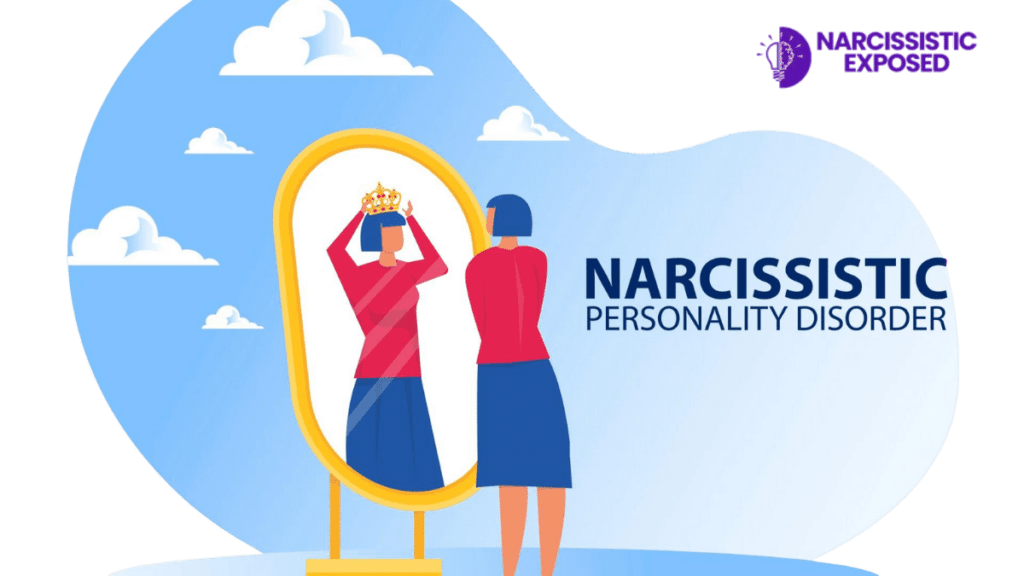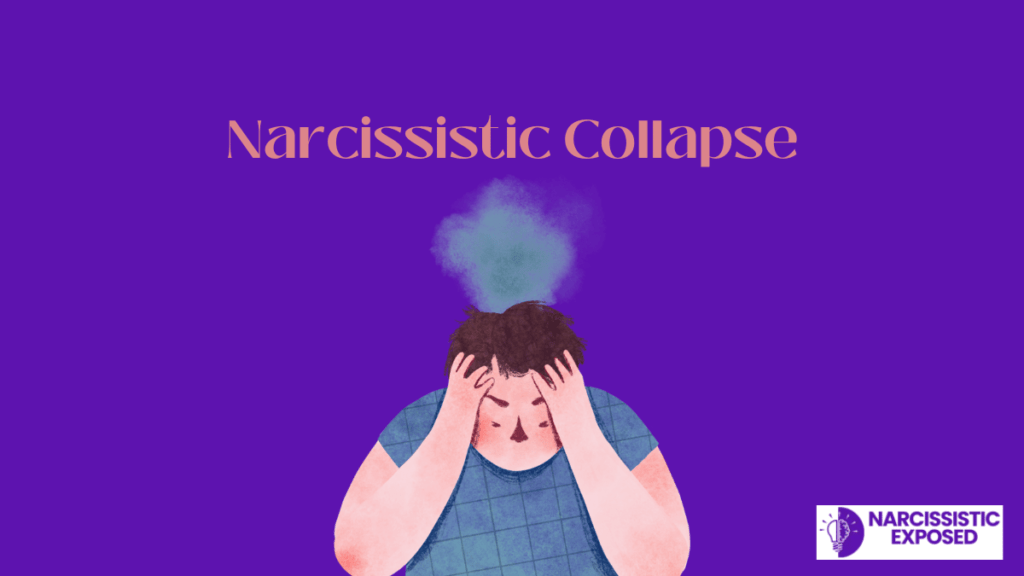
The concept of covert narcissist, often overshadowed by its overt counterpart, presents a challenge in both identification and understanding. Unlike overt narcissists, who are characterized by their blatant self-centeredness and a constant need for admiration, covert narcissists operate under a veil of subtlety, making their detection and comprehension a matter of keen observation and insight.
Recognizing the signs of covert narcissism is crucial, as it often goes unnoticed until it deeply affects personal relationships, professional environments, and social interactions. The covert narcissist’s propensity for emotional manipulation, passive-aggressive behavior, and a tendency to play the victim can lead to significant emotional distress for those around them.
Join us as we explore the enigmatic world of covert narcissism, from its defining characteristics to its impact on relationships, and gain insights into dealing with this challenging personality type. Through this journey, we hope to offer a new perspective on a topic that, while often hidden in plain sight, plays a pivotal role in human interaction and emotional well-being.
Table of contents
Understanding Covert Narcissism
Definition and Characteristics
Covert narcissism, a less obvious form of narcissistic personality disorder (NPD), is characterized by subtle manifestations of ego-centric behaviors and attitudes. Unlike the more recognizable, grandiose narcissists who display overt confidence and seek constant attention, covert narcissists often appear humble, introverted, and sensitive. However, beneath this façade lies a deep sense of superiority, entitlement, and a pervasive need for validation.
Critical characteristics of covert narcissism include:
- Subtlety in Seeking Attention: Unlike their overt counterparts, covert narcissists seek validation and admiration in more indirect ways. They may use self-deprecation or portray themselves as misunderstood to garner sympathy and attention.
- Sensitivity to Criticism: Covert narcissists are extremely sensitive to criticism. They may react with anger or withdrawal when they feel slighted or undervalued, often perceiving minor comments as personal attacks.
- Inward Focus on Superiority: While overt narcissists openly boast about their perceived achievements and superiority, covert narcissists harbor these feelings internally. They often silently judge others, believing themselves more intelligent or insightful.
- Passive-Aggressive Behavior: They are likelier to express aggression in subtle, indirect ways, such as backhanded compliments, sarcasm, or silent treatment.
- Victim Mentality: Covert narcissists often see themselves as perpetual victims, blaming others for their shortcomings and life’s challenges. This mindset allows them to deflect personal responsibility and garner sympathy.
Differences from Overt Narcissism
Understanding the distinctions between overt and covert narcissism is crucial. Overt narcissists are outwardly self-confident, openly seeking admiration, and possessing an unmistakable sense of entitlement. In contrast, covert narcissists mask their self-absorption and entitlement under the guise of sensitivity or humility. This distinction makes covert narcissism more challenging to detect, as it often blends into socially acceptable behaviors and traits.
The insidious nature of covert narcissism can make it particularly damaging. Because it’s not as blatant as overt narcissism, it often goes unrecognized, allowing the covert narcissist to subtly manipulate and impact the lives of those around them without detection. Recognizing these signs is the first step in addressing and managing interactions with individuals who exhibit these traits.
In the next section, we will delve deeper into the subtle signs of covert narcissism, offering a guide to identifying these often-overlooked behaviors in everyday interactions.
Subtle Signs of Covert Narcissist
Identifying covert narcissism requires an understanding of the subtle, often overlooked signs that distinguish it from more overt forms of narcissistic behavior. This section explores key indicators that are characteristic of covert narcissists, offering insights into their complex psychological landscape.
Emotional Withdrawal
One of the most telling signs of covert narcissism is emotional withdrawal, especially in situations where the individual feels neglected or overshadowed. Covert narcissists may retreat into themselves, displaying a cold or indifferent demeanor, as a means of asserting control or seeking attention. This withdrawal is often a defense mechanism against perceived emotional threats, such as criticism or lack of recognition.
Passive Aggressiveness
Covert narcissists are masters of passive-aggressive behavior. This can manifest in various ways, such as subtle digs, sarcastic remarks, or deliberately procrastinating on tasks as a form of silent rebellion or expression of disdain. Their passive-aggressiveness is a covert method of expressing anger or resentment without engaging in open conflict.
Victim Mentality
A key characteristic of covert narcissists is their tendency to adopt a victim mentality. They often portray themselves as misunderstood, underappreciated, or victimized by circumstances or other people. This approach allows them to garner sympathy and attention while absolving themselves of responsibility for their actions or situations.
Manipulative Behaviors
Manipulation is a core aspect of covert narcissism. Covert narcissists may use emotional manipulation, such as guilt-tripping or gaslighting, to influence and control others. They are adept at twisting situations to their advantage, often making others feel responsible for their emotional well-being. This manipulation is subtle, making it difficult for victims to recognize and confront.
Recognizing these signs is crucial in dealing with covert narcissists effectively. It’s important to note that these behaviors can be subtle and may not be immediately apparent, often becoming more evident over time and in closer relationships. Understanding these signs helps in identifying covert narcissists and protecting oneself from their manipulative tactics.
Covert Narcissists in Relationships
Treatment of Partners
The dynamics of a relationship with a covert narcissist can be perplexing and emotionally taxing. Covert narcissists often engage in emotional manipulation, employing tactics like guilt-tripping, gaslighting, and silent treatment to maintain control and assert dominance. These behaviors can leave their partners confused, invalidated, and emotionally drained.
In romantic relationships, covert narcissists may initially appear caring and attentive, luring their partners into a false sense of security. However, their need for control and admiration becomes more apparent as the relationship progresses. They may become increasingly critical, belittling their partner’s achievements or feelings to maintain a sense of superiority.
The lack of empathy is another critical aspect of covert narcissists in relationships. They often struggle to recognize or value their partner’s emotional needs, leading to a one-sided relationship where the partner’s role is to cater to the narcissist’s desires and affirmations.
Impact on Relationships
The impact of covert narcissism on relationships extends beyond the immediate emotional toll. It can lead to long-term psychological effects, including decreased self-esteem, anxiety, and a pervasive sense of loneliness or alienation in the partner.
Partners of covert narcissists may find themselves in a constant state of trying to appease or placate their partner, often at the expense of their own needs and well-being. This dynamic can create a vicious cycle, where the partner becomes increasingly enmeshed in the narcissist’s world, finding it challenging to set boundaries or exit the relationship.
Furthermore, the subtlety of covert narcissism means that its impact is often underestimated or goes unrecognized by outside observers, including friends and family. This lack of validation can further isolate the partner, making it more difficult to seek support or acknowledge the reality of the situation.
In conclusion, relationships with covert narcissists are characterized by emotional manipulation, lack of empathy, and a significant psychological toll on the partner. Recognizing these patterns is the first step towards addressing the challenges posed by such relationships and moving towards healthier, more balanced interactions.
Identifying a Covert Narcissist
Behavioral Indicators
Identifying a covert narcissist can be challenging due to their subtle and often deceptive behaviors. However, there are specific indicators to watch for. One of the most telling signs is a pattern of passive-aggressive behavior. This can manifest as subtle insults, sullen behavior, or non-verbal cues indicating displeasure while maintaining an outward appearance of innocence.
Another indicator is a persistent sense of victimhood. Covert narcissists often perceive themselves as perpetually aggrieved, believing they are constantly mistreated or misunderstood. They may recount stories in which they are always the innocent party wronged by others.
Covert narcissists also exhibit an excessive need for affirmation and validation, although they may not express it overtly. They are often preoccupied with their shortcomings and may seek reassurance or sympathy to bolster their self-esteem.
Psychological Patterns
Psychologically, covert narcissists tend to harbor deep-seated feelings of inadequacy and inferiority, which they compensate for with their narcissistic behaviors. Unlike overt narcissists, who display their superiority openly, covert narcissists disguise their grandiosity under a mask of modesty or self-deprecation.
Their interactions often involve subtle manipulations designed to elicit a specific response or affirmation from others. This manipulation can be guilt-tripping, feigning helplessness, or playing the martyr to gain sympathy and control.
It’s also common for covert narcissists to struggle with empathy, making it difficult for them to understand or care about others’ feelings genuinely. This lack of empathy is often masked by a superficial charm or feigned interest in others, used to fulfill their narcissistic needs.
In summary, identifying a covert narcissist involves recognizing a combination of behavioral and psychological patterns. These include passive-aggressive behaviors, a persistent sense of victimhood, a need for affirmation, manipulation tactics, and a lack of genuine empathy. Understanding these signs can help in identifying and appropriately responding to covert narcissists in various settings.
Dealing with Covert Narcissism
Strategies for Interaction
Navigating interactions with a covert narcissist requires a strategic and informed approach. The first step is setting clear boundaries. Establishing limits on acceptable behaviors and consistently enforcing these boundaries is crucial. This might involve directly communicating your needs and expectations and not tolerating manipulative or passive-aggressive behaviors.
Practicing assertive communication is also essential. Assertiveness allows you to express your thoughts and feelings openly and honestly without being aggressive or confrontational. This helps in dealing with a covert narcissist’s manipulative tactics, as it reduces their ability to twist words or situations.
Another effective strategy is to maintain emotional detachment. This involves not getting overly emotionally involved in the narcissist’s dramas or manipulations. By remaining emotionally neutral, you can protect yourself from becoming entangled in their dysfunctional patterns.
Seeking Professional Help
Dealing with a covert narcissist, especially in close relationships, can be emotionally taxing and complex. In such cases, seeking professional help from a therapist or counselor can be beneficial. Therapy provides a safe space to explore your feelings, understand the dynamics at play, and develop strategies to cope with the challenges posed by a relationship with a covert narcissist.
Professionals can also offer insights into the narcissist’s behavior, helping you to understand their actions better and how to respond effectively. In some cases, couples therapy may be appropriate, although it’s crucial to work with a therapist skilled in dealing with narcissistic behaviors.
In conclusion, dealing with covert narcissism involves a combination of setting boundaries, practicing assertive communication, maintaining emotional detachment, and seeking professional help when needed. These strategies can help mitigate the impact of a covert narcissist’s behaviors and foster healthier interactions.
My Personal Insight
Unique Perspective on Covert Narcissism
Delving into the world of covert narcissism, we uncover a terrain fraught with subtlety and complexity. As an observer and analyst of human behavior, my perspective on covert narcissists is shaped by both empirical knowledge and personal encounters. What stands out most prominently is the covert narcissist’s paradoxical nature – an intricate dance between vulnerability and manipulation, between seeking validation and dismissing it when offered.
Covert narcissists, in my view, are like shadows in a crowded room – often overlooked but significantly impacting the emotional climate. Their presence is not marked by loud declarations of self-importance, as with overt narcissists, but by a quiet, persistent undercurrent of neediness, entitlement, and emotional withdrawal. This duality is what makes them particularly challenging to deal with. On the one hand, there is a human being with genuine feelings of inadequacy and desire for connection. On the other, there is a manipulative persona that can cause significant emotional turmoil.
The Importance of Awareness and Understanding
The key to navigating interactions with a covert narcissist, I believe, lies in a balanced approach of empathy and firm boundary-setting. Understanding that beneath their manipulative behaviors lies a deep-seated insecurity can evoke empathy. However, this should not lead to excusing their toxic behaviors. Empathy must be coupled with assertiveness, ensuring one’s emotional well-being is not compromised when interacting with them.
Moreover, awareness and understanding of covert narcissism are critical in both personal and professional realms. In personal relationships, this knowledge can prevent individuals from falling into emotional manipulation. In professional settings, it can aid in recognizing the subtle undermining tactics of a covert narcissist, allowing for proactive measures to mitigate potential conflicts or disruptions.
Essentially, dealing with a covert narcissist requires a delicate balance of empathy, assertiveness, and self-awareness. It’s about recognizing the subtle signs, understanding the underlying insecurity, and responding in a way that preserves one’s emotional health while acknowledging the complexities of the narcissist’s behavior.
Frequently Asked Questions (FAQ)
What is a covert narcissist like?
A covert narcissist is characterized by traits of narcissism that are less obvious and more internalized than those of an overt narcissist. They often display a facade of humility or shyness, masking a deep-seated sense of superiority and entitlement. Covert narcissists are sensitive to criticism, harbor feelings of inadequacy, and may exhibit passive-aggressive behaviors. They often feel misunderstood and seek recognition and admiration in subtle ways.
How do covert narcissists treat their partners?
In relationships, covert narcissists can be emotionally manipulative and controlling. They may use tactics like guilt-tripping, gaslighting, or silent treatment to maintain control. Covert narcissists often lack empathy, struggle to recognize or value their partner’s emotional needs, and can be critical and dismissive. Their behavior can create a cycle of emotional dependency and confusion for their partners.
How do you know if someone is a covert narcissist?
Identifying a covert narcissist involves noticing patterns of passive-aggressive behavior, a consistent sense of victimhood, and a need for validation. Covert narcissists may manipulate situations to elicit sympathy or control and often struggle with genuine empathy. They may also react negatively to criticism, internalizing and responding with feelings of shame or humiliation.
What sneaky things do covert narcissists do?
Covert narcissists engage in subtle manipulations to fulfill their needs and assert control. This includes backhanded compliments, subtly undermining others, and feigning vulnerability to elicit sympathy or assistance. They may also manipulate conversations or situations to position themselves as victims, thereby gaining attention and sympathy.
Conclusion
In exploring the complex and often misunderstood realm of covert narcissism, we have journeyed through various facets of this subtle psychological phenomenon. From understanding its defining characteristics to recognizing its impact on relationships and identifying behavioral indicators to learning effective interaction strategies, this comprehensive guide aims to shed light on the enigmatic world of the covert narcissist.
Covert narcissism, with its hidden layers of emotional manipulation and passive-aggressive behavior, presents unique challenges in both personal and professional relationships. Recognizing these signs cannot be overstated, as it equips individuals with the knowledge and tools necessary for navigating these complex interactions. Awareness and understanding are crucial in preventing the emotional turmoil often associated with covert narcissism.
Furthermore, this exploration underscores the importance of empathy and assertiveness in dealing with covert narcissists. Balancing these approaches can help maintain healthy boundaries and emotional well-being while acknowledging the complexities inherent in the behavior of covert narcissists.
In conclusion, the subtle signs of covert narcissism require keen observation and understanding. By bringing these nuances to light, we hope to empower readers to recognize and effectively manage interactions with covert narcissists, fostering healthier relationships and promoting personal growth and emotional resilience.





